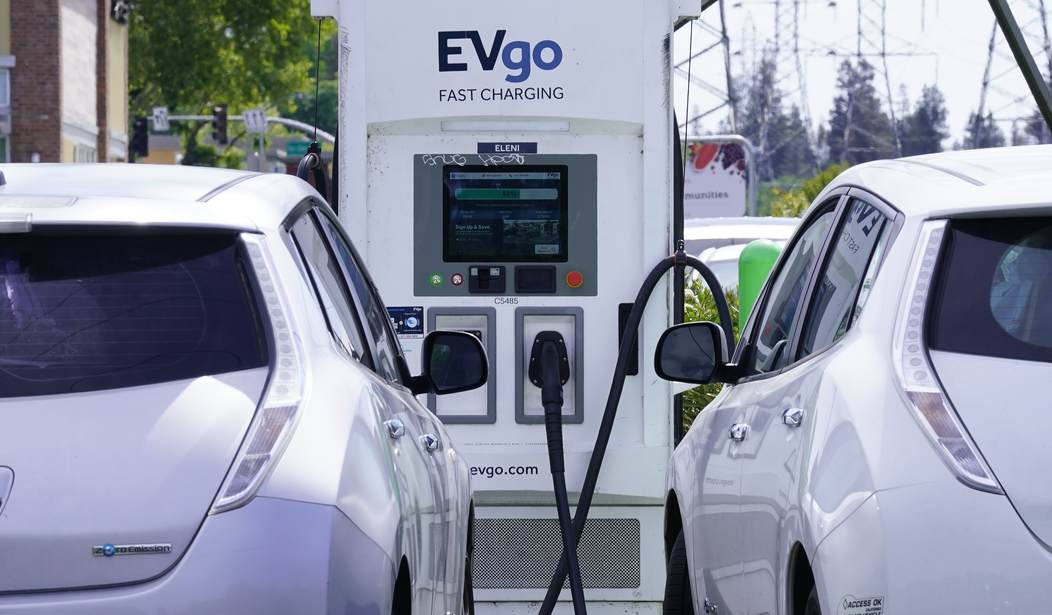Electric vehicles. As a lifelong car guy, one of my favorite subjects (targets). Let's get after it.
In 1997, Toyota Motors launched its hybrid electric vehicle, the Prius. Plug-in EVs hit the market in 2008-2010, including the Tesla Roadster, the Chevy Volt, and the Nissan Electric Leaf, contributing to a rise in popularity. 2021 was a record year for EV sales, with more sales than in the previous five years combined.
Fast-forward things three years, and my oh my, how things have changed, writes Todd G. Buchholz in a new Project Syndicate op-ed:
Despite Tesla Chief Executive Elon Musk’s entrepreneurial brilliance and billions of dollars in U.S. government subsidies to support EVs, it appears that consumers still prefer to drive to a gas station for a five-minute fill-up than to retrofit their garage and suffer the range anxiety that comes from hunting for a charging station in the parking lot of an abandoned shopping mall.
J.D. Power reports that 21% of public chargers do not work in any case. As consumers start to shy away from EVs, their choice will affect not just the car industry, but U.S.-China relations, state budgets and commodity prices.
The evidence [has been] rolling in fast. Earlier this month, Hertz, which purchased 100,000 Teslas to great fanfare in 2021, executed a squealing 180-degree turn and began dumping one-third of its EV fleet, taking a $245 million charge against its earnings. Its pledge to buy 175,000 EVs from GM will likely go up in smoke, too.
Outside of wealthy, trendy communities, consumers are walking past plug-in EVs and snapping up hybrids and gasoline-powered engines instead. In the fourth quarter of 2023, EV sales crawled up by just 1.3%. According to Edmunds, EVs tend to sit on dealer lots for about three weeks longer than gasoline-powered cars.
With Mercedes Benz EQS units languishing for four months, the company’s chief financial officer [has] acknowledged that the market is a “pretty brutal space.” Customers are staying away despite a price war in which Ford, Tesla, and GM slashed EV prices by 20%, on average, leading Ford to lose $36,000 on each unit sold.
I could go on, but suffice it to say that electric vehicles, heralded by green energy advocates and climate alarmists the world over, appear to have crashed head-on into practicality and reality.
ALSO READ:
UNWANTED: Inventories of Unsold Electric Vehicles Increased Three-Fold in 2024
Kamala Harris Wants to Take Away Your Gas-Powered Car
CNN Writer's Oxymoronic EV Article Is Priceless: Don't Believe Your Lying Eyes
As one might expect, the left-wing media aren't happy about the EV bursting bubble, as evidenced by the above link to the CNN writer story. The latest example of the media's desperate efforts to suppress or distort "unfortunate" EV news comes to us from Germany, where a new fire station was burned to the ground, resulting in the loss of millions of dollars of equipment.
First, let's look at how the news was headlined and reported by John Solomon's Just the News.
Electric Emergency Vehicle Burns Down Fire Ftation, Destroys Millions of Dollars in Equipment
An electric emergency vehicle belonging to a fire department in Germany caught fire and burnt down the new fire station. The fire, which occurred on Oct. 16, according to Euro News, started from a vehicle that "contained lithium-ion batteries and an external power connection."
The blaze destroyed nearly a dozen emergency vehicles and caused between $21.5 million and $25.9 million in damage. No one was injured. The station, which opened a year ago, didn’t have a fire alarm system ... because “experts considered it not necessary.”
In contrast, here's the headline and story from Euro News (emphasis, mine).
Brand-New Fire Station in Germany Destroyed in Blaze Lacked Fire Alarm System
A new fire station in Germany that was destroyed in a fire, causing millions of euros in damage, did not have a fire alarm system.
The fire broke out early Wednesday morning at the Stadtallendorf fire station in Hesse and destroyed the equipment hall and almost a dozen emergency vehicles, according to local media.
Initial estimates put the damage at between €20 million and €24 million. No one was injured.
Local officials told the German news agency that no fire alarm system was installed in the building because experts had considered it not necessary — much to the astonishment of many observers now that the station has burned down. The fire broke out on an emergency vehicle belonging to the fire department, which contained lithium-ion batteries and an external power connection.
“I believe that what has happened will make many people think and act,” about improving fire protection requirements at fire stations, Norbert Fischer, the head of the State Fire Brigade Association of the state of Hesse, said.
Coupla things, here.
While the Just the News article focused on the cause of the fire — the EV's battery — the Euro News article focused on the station's lack of a fire alarm system, and didn't get around to mentioning that the fire broke out in the EV until the end of the fourth paragraph.
Even more absurd, the head of the State Fire Brigade Association said the lesson to be learned was improving fire protection requirements at fire stations — not the propensity of EV lithium batteries to catch on fire.
The Bottom Line
Finally, and worst of all, what about the untold millions of people who own EVS and park them in their garages? What lesson is to be learned, there, as the left-wing media continues to do its damnedest to shill for green energy, environmental extremism, and the EVs?














